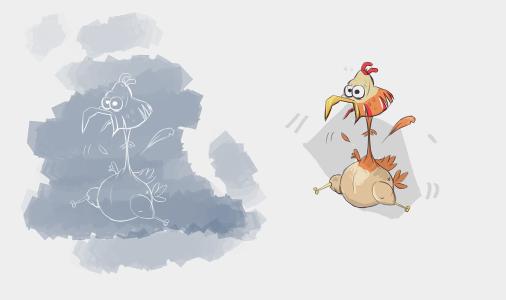有哪些易错的英语词汇,怎么辨析
时常遇到英语学习过程中很多词义相近,拼写类似的词汇或者短语,但是具体到每个词汇的用法总是很容易弄混淆。现在小编童鞋就为大家区分辨析这个最常用的语法搭配和释义的本质区分,赶紧收录起来吧!

1、 How long和how often
(1)一长段时间----------为了考试我已经保持学习了很长时间了。
[误]I have been studying long for the exam. [正]I have been studying for a long time for the exam.
解释: long用作表达时间的副词时,在否定句及疑问句中最常用,但在肯定句中除与so, too, as…as连用外,一般要用for a long time.
(2)一·····就·······---------书一被归还我就立刻给你打电话
[误]I'll call you as long as the book will be returned. [正]I'll call you as long as the book is returned.
解释:as…as引导的状语从句中可以用一般现在时表示将来。 区分as long as和as soon as.
(3)多久一次?询问频率----------你多久去看望你父母一次?
[误]How long do you go to see your parents? Once a week. [正]How often do you go to see your parents? Once a week.
解释 : 因为答语为每周一次所以问的是频率,要用how often. How long是问时间长度的
2、look 和 find
look for侧重于"寻找"这个动作,不关注有没有找到的结果,如:What are you looking for?
而find则侧重于结果,注重已经发现的事物或者现象,如:It is very difficult to find a job.这里不能用look for,因为真正困难的是"找到"工作。
(1)He often looks back on his high school days.解释 :look back on something为"回顾"、"回想,字面意思“向回看”,真实意思是回顾回想过去的事物
(2)I wish you wouldn't look down on (upon) the children's work.
look down on (upon)为"看不起"某人或某事。
(3)希望,期望look forward to doing······
[误]I'm looking forward to see you.[正]I'm looking forward to seeing you.
look forward to词组中的to是介词,所以其后要加名词或动名词,不能接不定式。
价值300元外教英语课程领取:http://www.acadsoc.com.cn/lps/lp4.htm?search=700053 (北美原版教材)
3、 lot和little
(1)因为我有足够多的钱,所以我可以现在就买这本词典。[误]I can buy this dictionary now, because I have got much money.[正]I can buy this dictionary now because I have got a lot of money.
解释 :much money多用于疑问句与否定句中,而在肯定句中要用a lot of. lots of与a lot of之间无多大区别,两者都可以修饰可数与不可数名词,所以常常可以互换。
(2)他现在高兴多了。[误]He is more happier now.[正]He is a lot happier now.
解析: 不可用more来修饰比较级,能修饰比较级的词有very much, a lot, lots, any, no, rather, a little, a bit等。
4、 make和do
(1) 这个小男孩被要求复述这个整完的故事。[误]The little boy was made repeat the
whole story.[正]The little boy was made to repeat the whole story.
(2)父亲让他的儿子从早到晚做作业。[误]The father made his son to do his homework
from morning till night.[正]The father made his son do his homework from morning till night.
解释 :make的句型为"make somebody do (doing) something".但在被动语态中原来被省去的不定式符号to要被还原回来。
(3)我时常犯这个错误[误]I always do this mistake.[正]I always make this mistake.
解释 :英语中do和make是十分不易弄清的两个动词,do常用于谈论工作时或某种不确定的活动时,如:do a favor(帮个忙),do one's best(竭尽全力),do good(有益),do harm(有害),而多数情况下常用make,如:make a suggestion, make a cake, make a bed(收拾床),make a noise, make money等等。
(4)make form/ of ,由什么制作而成 [误]This wine was made of grapes.[正]This wine was made from grapes.
解释 : 当成品制成后,其原料的性质有所改变时应用make from,否则用make of, 如:This door was made of iron.
(5)辛勤工作可以弥补缺陷的智力make up for ,弥补···
[误]Hard work can often make up a lack of intelligence.[正]Hard work can often make up for a lack of intelligence.
解释:make up是"创造"、"编织",而make up for是"弥补……的不足之处"。上句应译为"勤奋工作可以弥补天资的不足。"
(6)下定决心做某事···[误]We made up our mind to study hard.[正]We made up our minds to study hard.
解释 :mind这里是可数名词,使用要特别予以注意make up one's mind是"下定决心"之意。
(7)由什么组成make up of·····[误]Our class is made of twenty girls and twenty-one boys.
[正]Our class is made up of twenty girls and twenty-one boys.
解释:make up of…是"某物由……组成或构成"。
<上一篇 秒杀众人的英语口语句式有哪些分享
下一篇> 英文通知和日记的应用文要素有哪些






评论